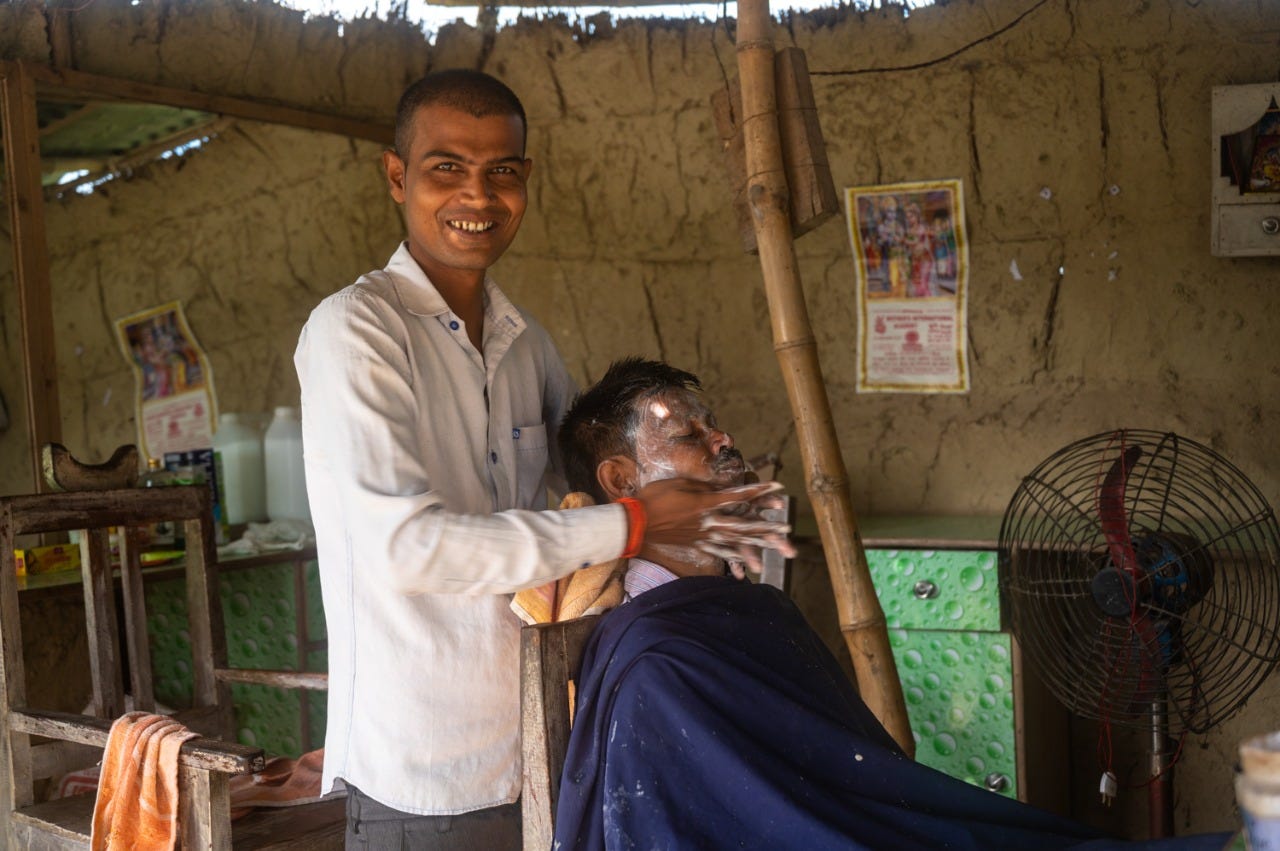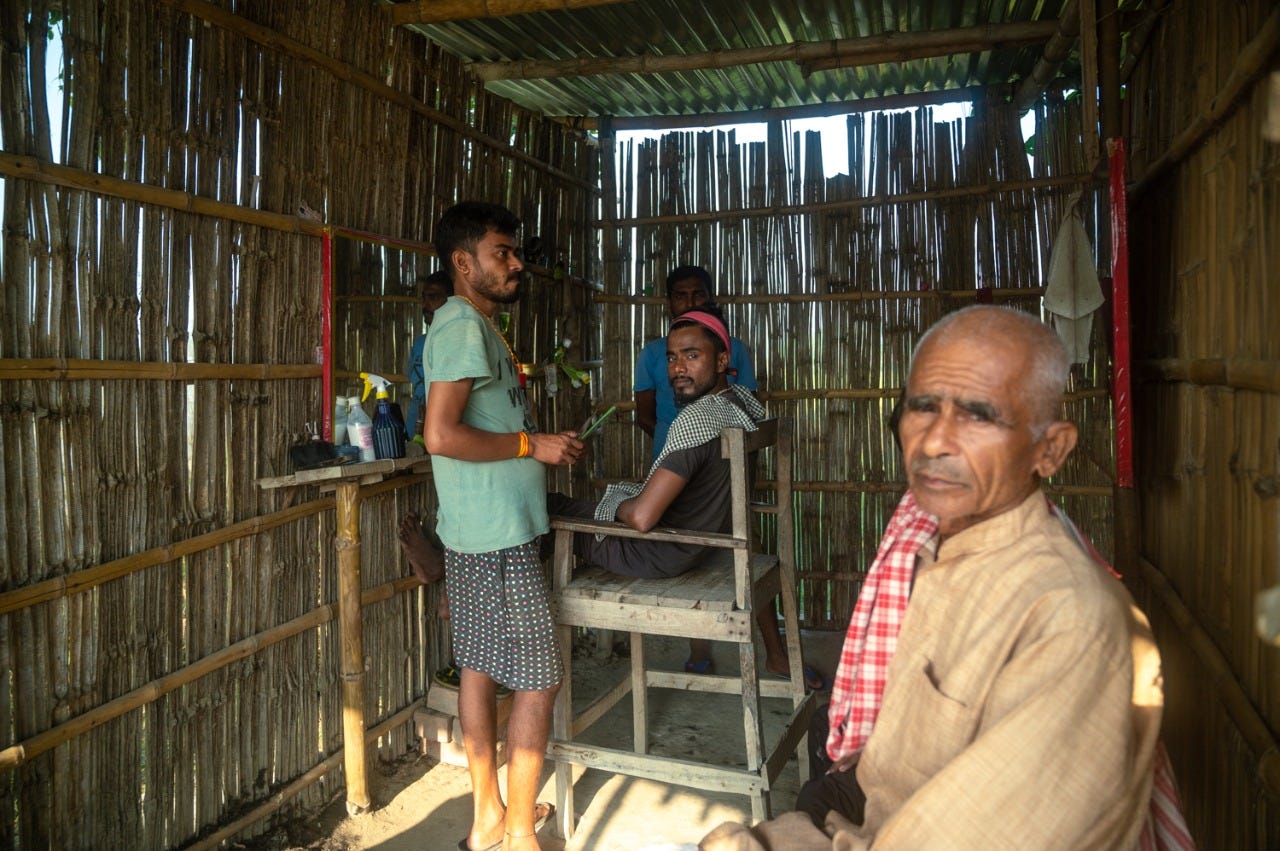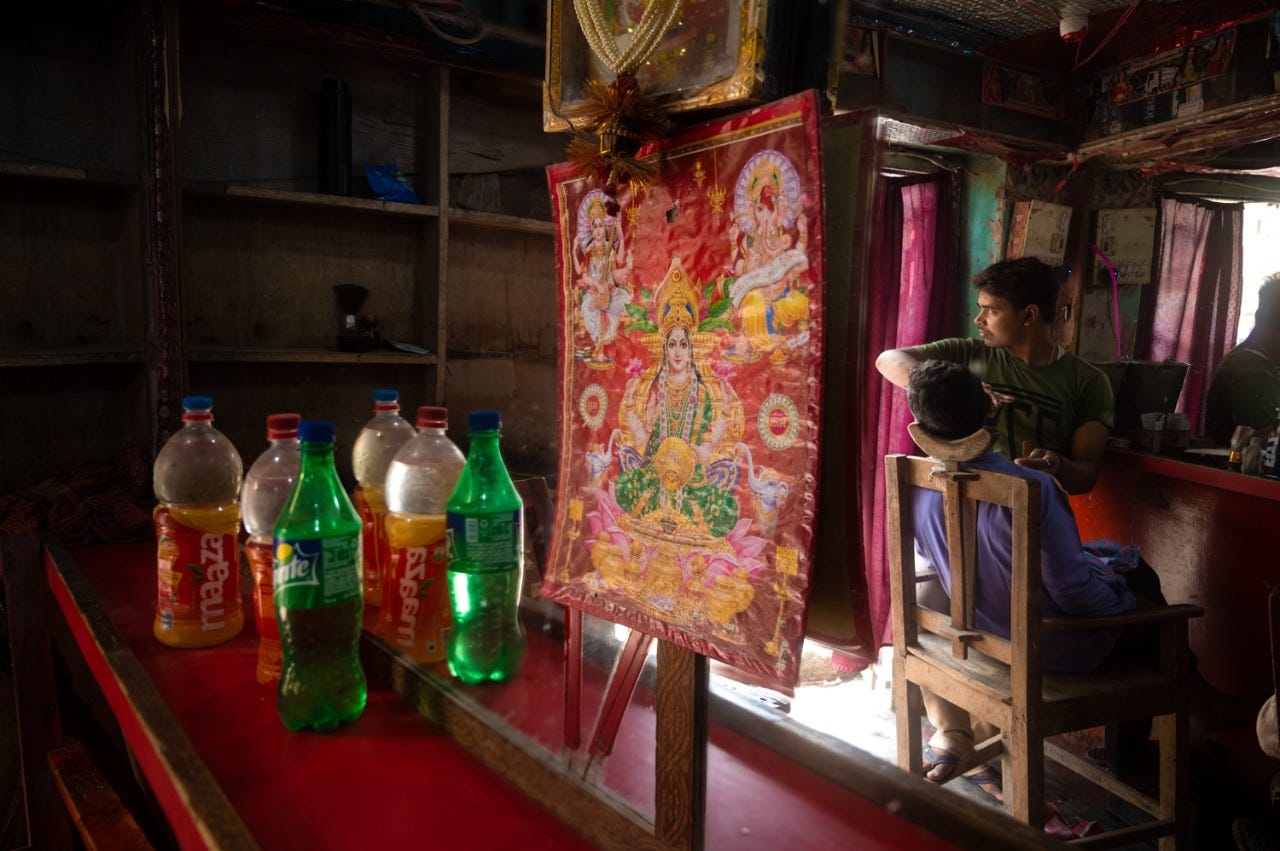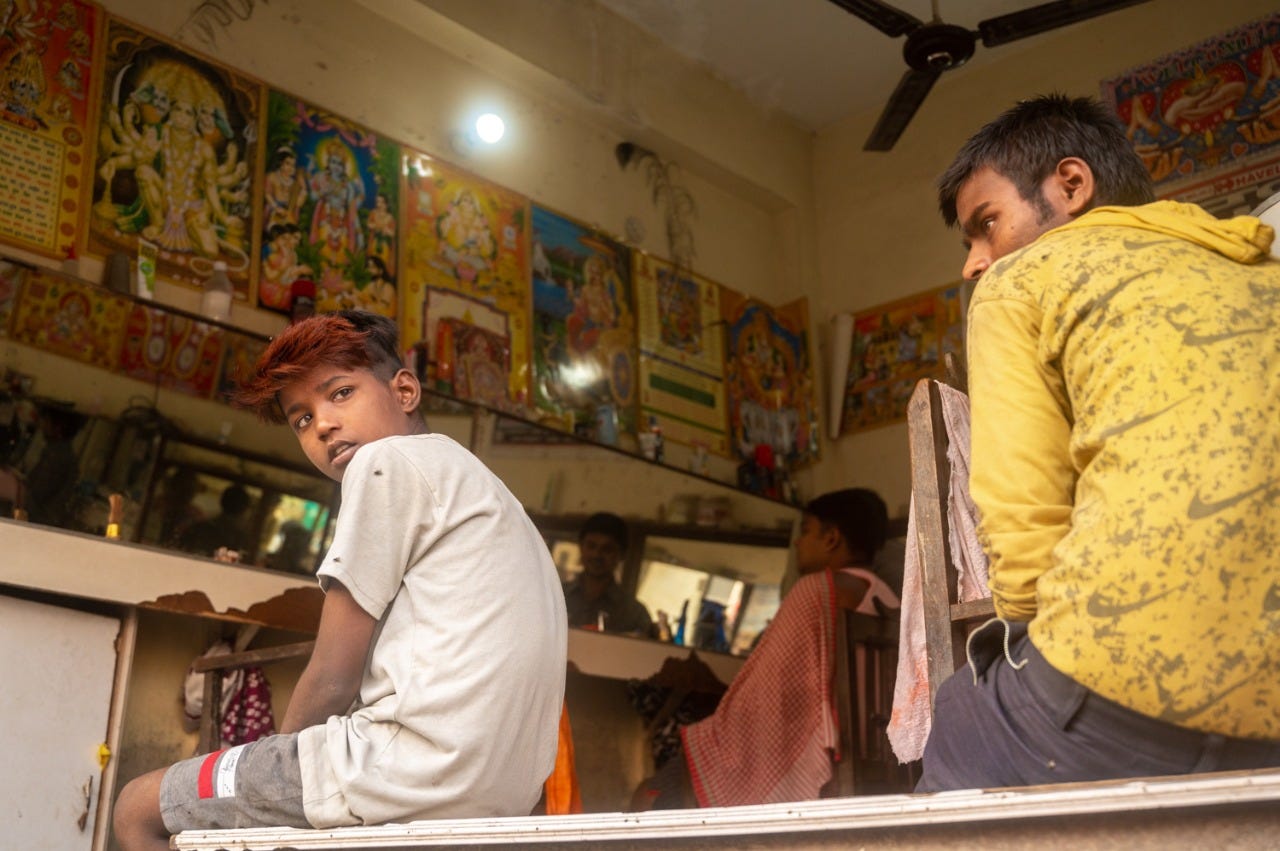
This is the third in a series of articles within the Ghumakkadi project. If you haven’t been following the series, please read the first article for more context.
घुमक्कड़ को समझना चाहिए, कि उसे ऐसे देश में जाना पड़ सकता है, जहाँ उसकी भाषा नहीं समझी जाती, अतएव वहाँ सीखे-समझे पुस्तक की ज्ञान का कोई उपयोग नहीं हो सकता। ऐसी जगह पर ऐसे व्यीवसायों से परिचय लाभदायक सिद्ध होगा, जिनके लिए भाषा की आवश्यक्ता नहीं, जो भाषाहीन होने पर भी सर्वत्र एक तरह समझे जा सकते हों। उदाहरणार्थ हजामत के काम को ले लीजिए।
All ‘Ghumakkads’ must understand that they might find themselves in a country where they don’t understand the language, and where all bookish knowledge would be of no use. In such places it is advisable to be familiar with such businesses which do not need language, and which can be understood universally even without language. You can take cutting hair as a good example.
Sankrityayan, Rahul. घुमक्कड़शास्त्र: Ghumakkad Shastra (Hindi Edition) (p. 32).
I've always had a fascination with barber shops, especially small town ones. When I was a student in a residential school in Pilani, Rajasthan, we had a barber who would come to our hostel once a week and cut our hair for two rupees per student. All the pleading and instruction from our end could not illicit a change in the manner in which he cut our hair - short on the top and even shorter all around. With my already ape-like features, by the time he was done he would set me back a few steps in the evolutionary process. Later on, we would save money and go to the barber shop on campus, a small room with posters of actors and hair models beside the wall to wall mirrors, and seniors (11th and 12th class students) getting their eyebrows shaped. Here we were heard, and even complimented! As we sat on the barber’s throne, we were regaled with how we had great hair, and that we’ll have thick locks even on our 60th birthdays. My slowly receding hairline guffaws at the memory.
The hair salon is a fascinating place. In a society like ours, the barber’s haven takes on multiple dimensions. There is a strange intimacy between strangers in that room - who become acquaintances and even friends - in a space which is so open yet personal. I abhor ‘modern’ hairdressers - Javed Habib and his fleet of uniformed, plastic-hair-dryer wielding, brightly lit and scrubbed clean pits of franchised hell be damned. Haven’t they taken something so varied, unique and individualistic and turned it into a capitalist utopia of glittering tomes sans character or charm? Thankfully their scourge has not - yet - reached the inroads of rural society, where there are still alum wielding, tea-drinking (in the middle of your haircut), mechanical clippers brandishing naayis who are clipping away the ever-growing sea of human hair in their own - small, yes, but full of character and charm - salons.
Of course, both have their place in the scheme of things - and I tend to be an over-romantic hypocrite. Alas, my last haircut was at the former and not the latter.
In our largely homophobic society, where men lead lives pretending to be ‘Men’, these spaces are also pockets where they can explore their own beauty, contemplate how they are seen vs how they would want to be seen, and even be touched by another man without worrying if their sexuality would be threatened. I think there are a lot of emotions that men feel at a salon that they honestly do not have any other space in our society to feel in, or they would permit themselves to feel them in.
Add to this charm the constant thrill of danger! If you think about it, the tools of barbers can significantly hurt - even maim! - if used with even slight ill-intent - or worse, carelessness. I feel this prevailing precariousness - completely unacknowledged by both the barber and their customer - makes each salon a testament of trust. Both the customer and the barber feel completely at ease under the scrutiny of the many gods and sultry hair models that peep through the myriad posters on the walls. Where else do the seductions of religion and beauty work together in such tandem? No wonder the Naayis of the great Mughal kings were buried alongside them in their mausoleums.
Jannat needs its barbers.
If you like this blog, you can follow more content from the walk here - videos on YouTube, posts and stories on Instagram, and articles on this blog. If you think our ideas are interesting and would like to know more about the walk, please try and subscribe. We promise we won't spam!
The writer Shridhar Sudhir is an independent filmmaker, academic, artist, and founder of Buddhijeev Studios. You can check out his website here.








Barbers are an intrinsic and integral part of Indian social life and have an important role in all life events such as births, deaths, marriages etc. I suppose they occupy this position since they have access to all households in the locality.
घुमक्कड़ को समझना चाहिए, कि उसे ऐसे देश में जाना पड़ सकता है, जहाँ उसकी भाषा नहीं समझी जाती, अतएव वहाँ सीखे-समझे पुस्तक की ज्ञान का कोई उपयोग नहीं हो सकता। .....
हर शक्स को घुमक्कड़ होना ही चाहिए